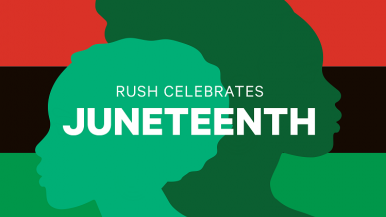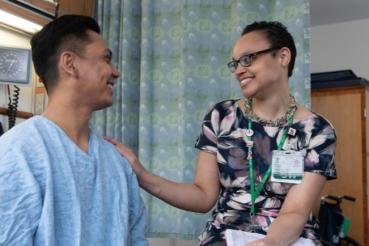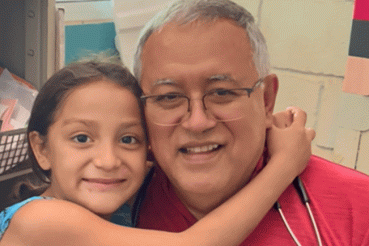Rush University System for Health is proud and honored to celebrate and recognize Juneteenth.
Although the signing of the Emancipation Proclamation took place on Jan. 1, 1863, not until June 19, 1865, were enslaved people in Galveston, Texas, made aware that they were free. It was on that day that Union Army Maj. Gen. Gordon Granger rode into the city to officially share the news, which sparked widespread celebrations statewide. From that day forward, June 19 has been known as Juneteenth (a combination of “June” and “nineteenth”) and celebrated as Black Independence Day.
This day has long been celebrated in Texas. And just this week, Illinois announced it as an official state holiday and then President Biden signed a bill establishing Juneteenth as a federal holiday, effective immediately.
But it was not until the murder of George Floyd that organizations really rallied around the importance of this in history. Not only did Juneteenth mark the end of an era, but it also welcomed what many hoped would be a new beginning for Black Americans.
Juneteenth is a time of joyous reflection on the richness of Black culture and history where we honor contributions made by Black Americans and the legacy of those who fought to ensure that the treatment of Black Americans is equitable and just. Though strides have been made to ensure racial equality and equity, achieving that has continually been a challenge.
Last year, Rush celebrated Juneteenth with the formation of the Racial Justice Action Committee to tackle racial injustice and inequities at Rush and deepen this work in our communities. Progress will not happen overnight, but it is indeed happening.
Commitment statement
This year, Juneteenth once again reminds us that racial justice and equity require ongoing work from all of us. In fact, they require a deep commitment. To reflect that, a new racial justice and equity commitment statement that also reflects our commitment to diversity, equity and inclusion has been developed with feedback from the Racial Justice Action Committee, members of the Diversity Leadership Council and members of the Rush BMO Institute for Health Equity.
This statement will serve as a guidepost for this work going forward. As we move along in our work dismantling racism and actively being anti-racist as an organization, this statement will evolve along with it.
At Rush University System for Health, we are committed to establishing a climate that:
- Honors and respects our differences
- Delivers fair treatment and equitable access to care, opportunities and resources for patients, staff, students, faculty, staff and employees
- Actively engages and partners with Rush’s internal and external communities to empower them as leaders and decision-makers in the work
- Advances racial justice and equity by dismantling barriers, righting injustices, being actively anti-racist and promoting equity in health care, in learning, in research and in our communities across the Rush system
Providing historical context
As part of our celebration of Juneteenth, Rush is elevating Black voices, particularly those from the West Side community, to highlight the importance of the Black narrative, telling history from a Black person’s point of view, and the importance of understanding the fight for racial justice and equity in the context of this nation’s history.
To help provide some historical context, Darlene Hightower, JD, vice president of community health equity, sat down after the murder of George Floyd to talk with Revs. Marshall Hatch Jr., executive director of the church’s MAAFA Redemption Project, and Marshall Hatch Sr., pastor of West Garfield Park’s New Mount Pilgrim Missionary Baptist Church, for a virtual roundtable on racism.
The video discussion is broken up into seven segments and provides historical context on the racist past of the United States, what history has taught us that we have to unlearn, and how to forge a new path forward. Hightower’s interview with the pastors and David Ansell, MD, senior vice president of community health equity gives perspective on the following topics:
- Part 1: Historical Perspective on Racism
- Part 2: Racism is a Public Health Crisis (featuring David Ansell)
- Part 3: Corporate America Responds
- Part 4: Moving Beyond America’s Origin Story
- Part 5: Taking Action
- Part 6: What Can I Do?
- Part 7: What is the MAAFA Redemption Project?
The video series can be found here as a playlist in its entirety and also on our RJAC Resources page in the Be Anti-Racist section. It serves as a great opportunity for small discussion group work to learn more about the roots of racism in America and ways we can be actively anti-racist, allies and advocates for racial justice and equity.
Happy Juneteenth!




